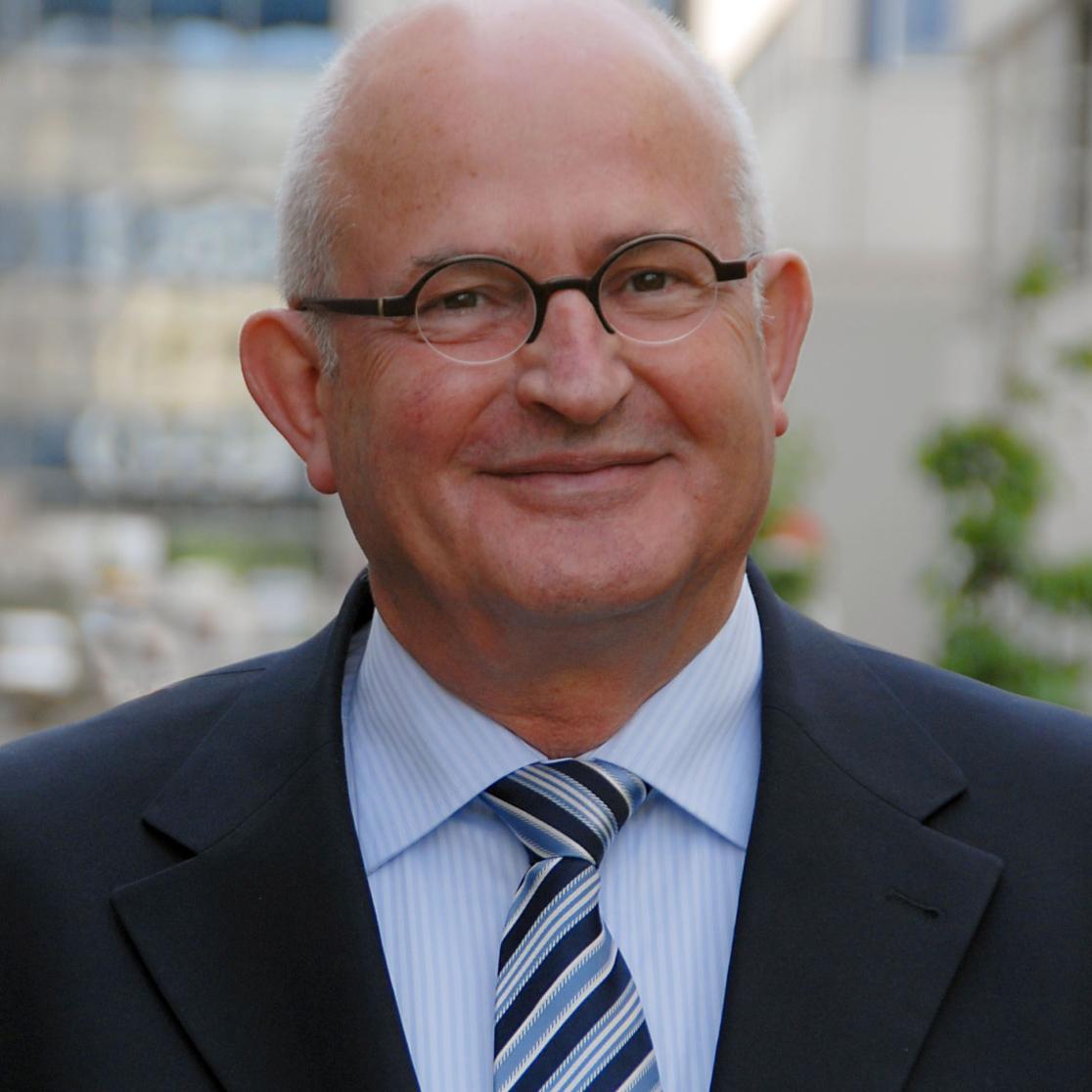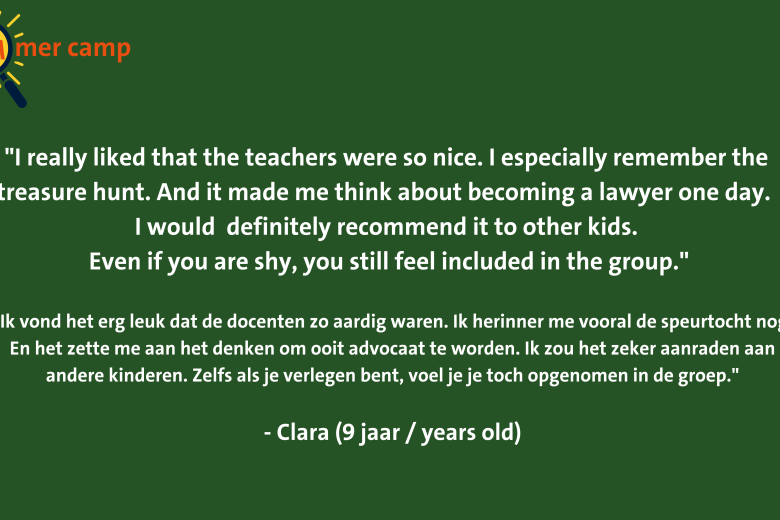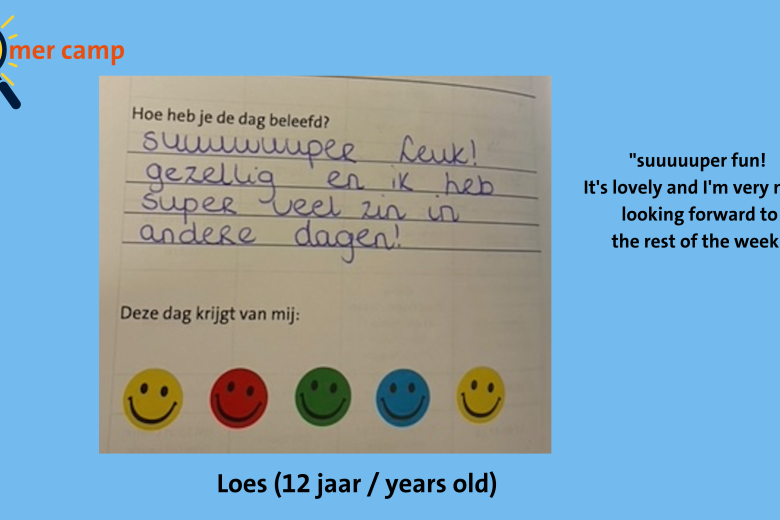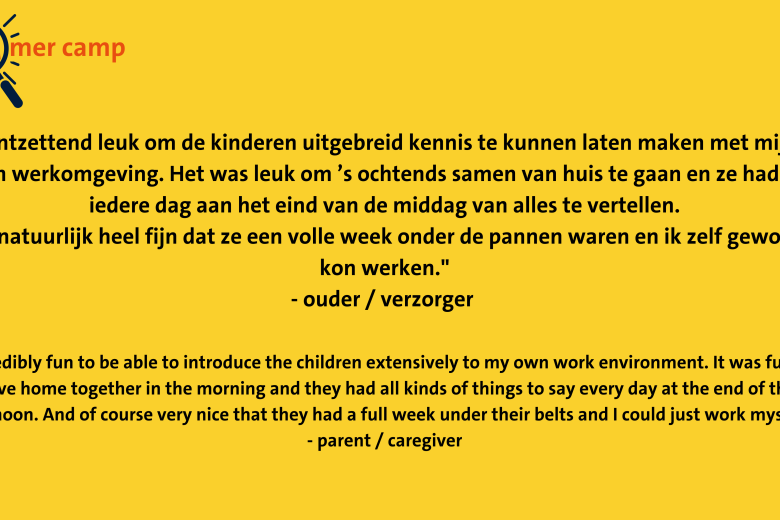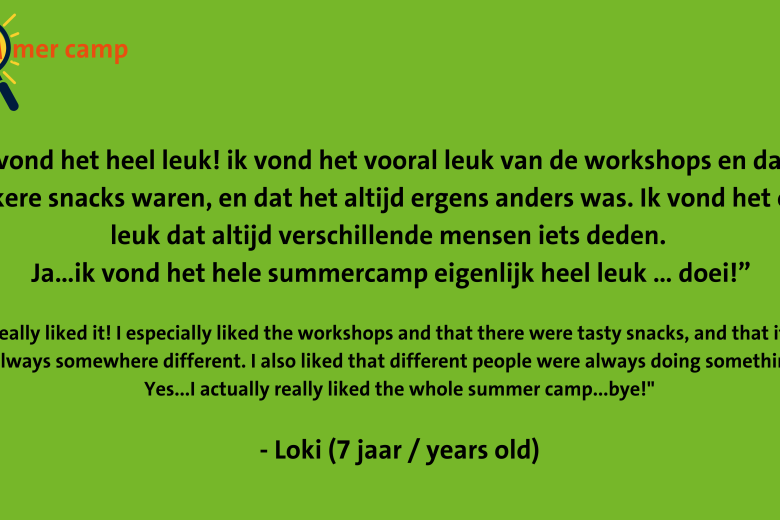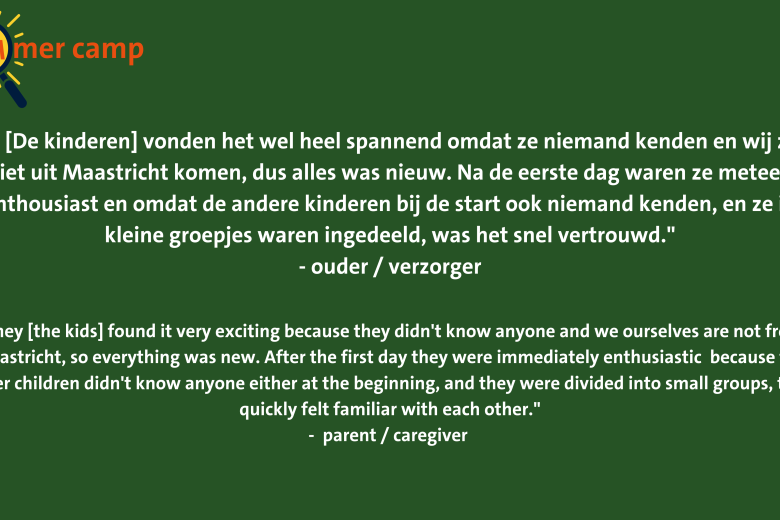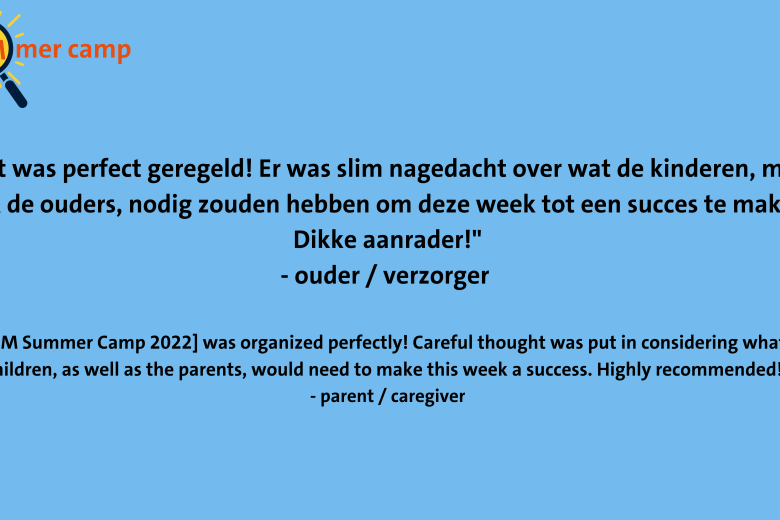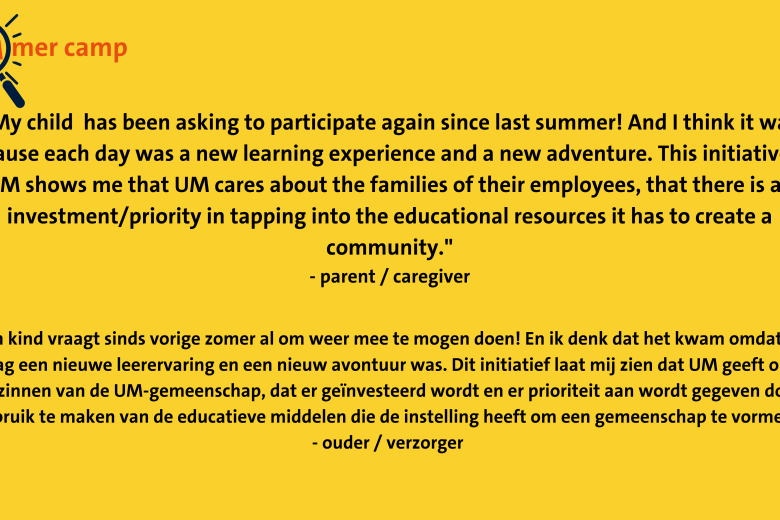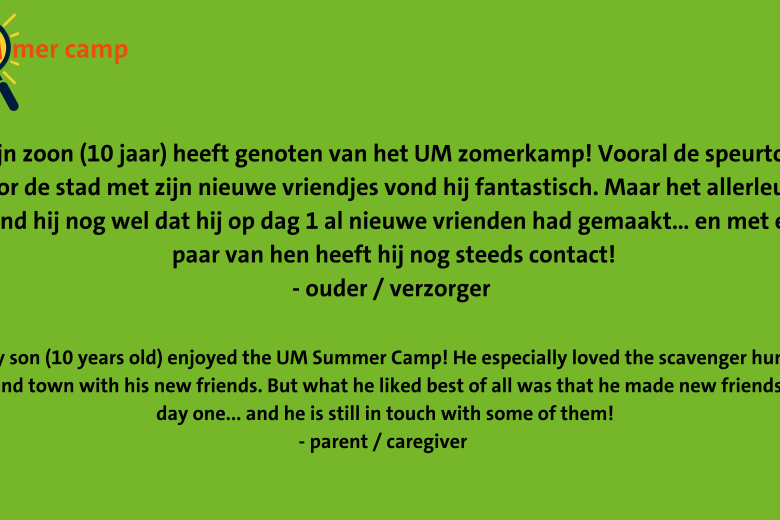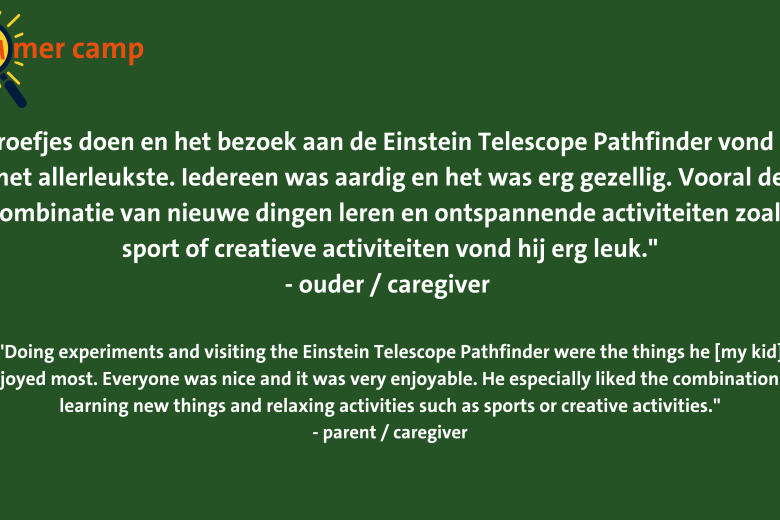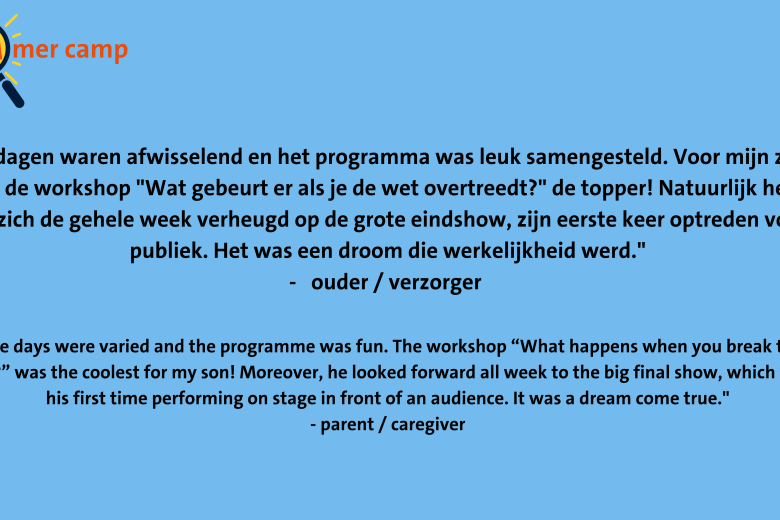The workshops
Educational workshops are scheduled daily in parallel in the morning (Monday to Friday between 09:00-12:00) at a UM downtown location (tbd) and last up to one hour for both age groups. A workshop for both groups takes place on the same day. The working language of the workshops is Dutch. A fee of €100.00 per workshop will be transferred to the department/professional group's desirable budget number.
Experience from the first summer camp shows that collective interaction is an important element in keeping the children's attention, especially with the youngest group. So do not turn the workshop into a university lecture, but involve all children in your class in the story: use tangible and visual items; divide the children into sub-groups where they can work on an assignment; let the children step into the role of a doctor/researcher/lawyer/politician, etc. Check out the overview of workshops given at UM Summer Camp 2022 for inspiration (at the bottom of the page).
Summer Camp at UM?
Submit your workshop idea!
If you have been inspired and have a good idea for a workshop for UM Summer Camp 2023, submit your idea via the online form (in Dutch).
>> Deadline for submitting your idea: Sunday 26 February 2023 23:59 <<
A maximum of 10 workshops will be selected and therefore the following will be considered in the selection process:
- the diversity of applications (themes/topics) and applicants (faculties/disciplines/expertises)
- the social relevance of the workshop topics/themes
- incorporation of components of diversity and inclusiveness in the design of the workshop
You will hear by e-mail no later than Thursday 2 March 2023 whether your workshop has been selected.
If you have questions, please contact us by e-mail: UMcares@maastrichtuniversity.nl
Kidz and parents/carers about the 2022 edition of UM Summer Camp
Read comments from children and parents/carers who participated in UM Summer Camp 2022 - WizzKidz
Read Darshini and Netty's retrospective on how they experienced UM Summer Camp 2022 as organisers.
Fun & Educational
The day programme consists of educational workshops and active and creative group activities with an eye for cultural and linguistic diversity of the participants: a nice mix of fun & educational!
The Explorers will be divided into two groups for the workshops and activities:
I. Group 3 to 5 (Netherlands) and grade 1 to 3 (Belgium) or equivalent from international schools and II. Group 6-8 (Netherlands) and year 4-6 (Belgium), or equivalent from international or other schools.
Parents/carers are welcome at the official opening of UM Summer Camp 2023 for children, crew and supervisors. On the last afternoon there will be a great closing party for all Explorers and their families!
It will be a real UM party because the workshops will be given by UM teachers and staff, the guidance will consist of UM staff and students, and the base location of UM Summer Camp 2023 is Tapijn.
For a hint of the 2023 programme and an overview of the daily schedule, scroll down to Programme Summer Camp 2023.

UM Summer Camp 2023:
- 5-day programme from 8.30-17.00, fully catered for by UM
- Workshops and group activities in two age categories
- Supervision of subgroups by UM-students
- Food, drinks and snacks
- An unforgettable experience and a tangible memory
In 2023, the fee for participation per child is €100.
Application UM Summer Camp 2023 - CLOSED
For the second edition, too, a conscious decision was made that the main language is Dutch. Does your child / children speak and understand Dutch? Then they can participate! The programme pays attention to cultural diversity and crew also speaks English. Communication with parents/carers is in both Dutch and English.
In addition, the group size has been increased to 50 children this edition.
Which children are eligible to participate in UM Summer Camp?
Children of UM-students registered in academic year 2022-2023
Children of all PhD-candidates and bursaries at UM at least until 31 July 2023
Children of UM staff and faculty UM, namely:
- with an indefinite contract
- with a fixed-term contract (at least until 31 July 2023) both through UM and InterUM
- with a contract with a UM supplier, employed at UM and at least until 31 July 2023 (e.g. Eurest Compass, GOM, Trigion, BPL, Equans, Meersmans).
the submitter (UM student/PhD candidate/UM employee) is the parent and/or legal guardian of the child/children.
The application and selection process consists of 2 phases:
- Subscription and selection
- Registration and payment, if selected
Subscription and selection:
Registering your child(ren) for Summer Camp 2023 is closed. Registration was open from Monday 13 March to Sunday 2 April 2023 23:59.
Once the registration period is closed, selection will take place by drawing lots. Fifty children will be drawn to actually participate. By 14 April 2023, we will know whether your child/children will be part of the 2023 Explorers! Correspondence will be sent by e-mail.
Registration and payment, if selected:
After selection, instruction for final registration and payment follows. All additional information regarding allergies, dietary requirements, accessibility needs, special circumstances, permission, emergency numbers, etc. is requested during this registration.
Payment is also made directly at this stage. Participation in UM Summer Camp 2023 is final after payment has been made.
Private online environment for parents/carers
A few weeks before the start of Summer Camp 2023, parents/carers will get access to the online UM Summer Camp environment with detailed information and programme updates.

Eligibility criteria
- Children speak and understand Dutch
- Children can participate for the entire Summer Camp week (partial participation is not possible)
- Children have primary school age (as of 6 years) in school year 2022/23
- The submitter is UM employee, employee of supplier* of UM, PhD candidate or bursar at UM or UM student (enrolled in year 22/23)
- The submitter is the parent or legal guardian of the child or children.
- Each child can be registered only once for the draw
- You can submit multiple children per family in one application
- If there is a draw, children from 1 family are considered as a whole and thus we guarantee that, if drawn, all registered children from 1 family can participate.
Do you have questions about whether we can meet your child's needs? If so, please contact us via email umcares@maastrichtuniversity.nl
Programme Summer Camp 2023 - Concept
Day 2
| Tijd | Activiteit | Locatie |
| 08.30 - 09.00 | Arrival Explorers | Tapijn |
| 09.00 - 10.15 | Educational Workshop | Tapijn |
| 10.15 - 10.45 | Snacktivity | Tapijn |
| 10.45 - 12.00 | Educational Workshop | Tapijn |
| 12.00 - 13.30 | Lunch break + group assignment | Tapijn |
| 13.30 - 16.30 | Group activity | Tapijn |
| 16.30 - 17.00 | Close of the day | Tapijn |

Day 3
| Tijd | Activiteit | Locatie |
| 08.30 - 09.00 | Arrival Explorers | ntb |
| 09.00 - 10.15 | Educational Workshop | ntb |
| 10.15 - 10.45 | Snacktivity | ntb |
| 10.45 - 12.00 | Educational Workshop | ntb |
| 12.00 - 13.30 | Lunch break + group assignment | ntb |
| 13.30 - 16.30 | Group activity | ntb |
| 16.30 - 17.00 | Close of the day | ntb |

Day 4
| Tijd | Activiteit | Locatie |
| 08.30 - 09.00 | Arrival Explorers | Tapijn |
| 09.00 - 10.15 | Educational Workshop | Tapijn |
| 10.15 - 10.45 | Snacktivity | Tapijn |
| 10.45 - 12.00 | Educational Workshop | Tapijn |
| 12.00 - 13.30 | Lunch break + group assignment | Tapijn |
| 13.30 - 16.30 | Group activitiy | Tapijn |
| 16.30 - 17.00 | Close of the day | Tapijn |

Day 5
| Tijd | Activiteit | Locatie |
| 08.30 - 09.00 | Arrival Explorers | Tapijn |
| 09.00 - 10.15 | Educational workshop | Tapijn |
| 10.15 - 10.45 | Snacktivity | Tapijn |
| 10.45 - 12.00 | Educational workshop | Tapijn |
| 12.00 - 12:45 | Lunch break | Tapijn |
| 12:45 - 15.30 | Preparation ceremony and rehearsal | Tapijn |
| 15.30 - 16.30 | Ceremony and group performances Explorers | Tapijn |
| 16.30 - 17.00 | Closing of UM Summer Camp 2023 | Tapijn |

Programme - More information will follow
We recently received the sad news that Prof Joep Geraedts passed away on 25 December. He was the founding father of the Department of Clinical Genetics at Maastricht UMC+.
Joep Geraedts was born in Swalmen (near the Dutch town of Roermond) in 1948. His parents had only gone to elementary school, but they encouraged him to pursue his education and so Joep went on to study biology at Nijmegen University. During his studies, he was already fascinated by genetics, and for his PhD research he went to Leiden, where he studied the cytogenetic aspects of leukaemia with Peter Pearson. A few years later, when Maastricht’s new medical faculty was looking for someone to set up a department of (Clinical) Genetics, it was partly on the advice of Hans Galjaard that Joep was invited to do so.
That’s how he came to Maastricht in 1982, where he was appointed professor of Genetics and Cell Biology at the age of only 34. He also became director of the newly established Limburg Clinical Genetics Foundation (SKGL), which began work early in 1983. Those were pioneering years, because nothing had yet been arranged – no labs, no equipment... nothing at all. But Joep managed to arrange it all. He was able to attract the right people, and with the help of colleagues and advisers the new specialisation took shape.
Joep guided the department through a merger and integration into the university hospital. From just a handful of physicians and laboratory technicians, the department grew to its current staff of 190. Besides diagnostics and patient care, there was also a strong focus on education, with Joep becoming chair of the Medical Faculty’s examination committee.
He was very approachable – no “ivory tower” – and his door was always open to all. For everyone, Joep Geraedts was Joep Geraedts, or just Joep. And although not every staffer realised it, he knew them all by name. They respected him because they could go to him not only with work-related problems but also with their personal concerns.
That was certainly true of the many PhD candidates he supervised during his career. Every one of them could imagine him in that characteristic pose he had: pondering, with his eyes half-closed. And just when you wondered if he’d fallen asleep, he would come up with a pertinent question or a relevant comment that proved otherwise. Many PhD students gained experience presenting their research at the Genetics Retreat initiated by Joep and others, an annual conference for and by young researchers. He recognised the importance of getting young people excited about the profession too, and he readily made time in his packed schedule to give schoolchildren a glimpse of what it involved.
He launched Dezen en Genen, a magazine for first- and second-line healthcare professionals. Joep was keenly aware of the role genetics can play in society, as well as the ethical and social aspects of heredity research. In 1985, when both IVF and prenatal diagnostics were performed in two adjoining areas at the Biomedical Centre, Joep Geraedts, Hans Evers, and Guido de Wert came up with the idea of developing preimplantation genetic diagnostics (PGD). Thanks to their unwavering conviction and perseverance, Maastricht UMC+ became the first – and so far the only – centre in the Netherlands licensed for PGT, as we currently term it.
Joep was tactful and knew how to access the right channels, and he could negotiate and overcome obstacles – all in the interests of the department and of genetics. He didn’t shy away from anything, even when there was a Cabinet crisis about PGD, and especially its application in cases of hereditary breast cancer. Wasn't this technology dangerous or even unethical? We then saw Joep on TV and in the newspapers, radiating calm and confidence. He made it clear that this new means of ensuring that a woman could have a baby without the risk of serious hereditary disease had been thought through and implemented with the greatest caution and care. His comments certainly played a role in the government's ultimate agreement to expand PGD in cases of hereditary breast cancer. Hereditary breast and ovarian cancer is now the most frequent reason for couples to undergo PGD. In 2008, Joep Geraedts was appointed Officer in the Order of Orange-Nassau, among other things for his pioneering work on PGD.
Joep chaired a number of organisations, including the Netherlands Association for Human Genetics (NVHG) and the Clinical Genetics Laboratory Diagnostics Association (VKGL). He was also an internationally recognised expert in the field of PGD. He enthusiastically chaired the European Society of Human Reproduction and Embryology (ESHRE) and in that role too, this amiable communicator was able to establish the right partnerships.
In 2013, Joep bade farewell to his Department of Clinical Genetics and to work at MUMC+. His departure was marked by a large-scale symposium at Maastricht’s central theatre, held with the sole purpose of putting the Clinical Genetics Department in the limelight one more time by way of legacy.
After leaving, he remained very active. He was a valued member of the Tripod committee that investigates emergency incidents at the hospital with the aim of improving processes and enhancing patient safety. Joep was rooted in South Limburg, where he enjoyed cycling with his club. He was in constant touch with the social and cultural life of Limburg. He was a loyal supporter at MVV Maastricht’s home football games. He organised concerts in Eijsden, where he lived, and was one of the driving forces behind the family museum there. Joep was witty, a real wizard with words, a talent that served him well as magnificent rector of the humorous Fools’ University of Limburg (NUL).
We will remember Joep as an inspired researcher, an excellent teacher, and a head of department who cared about his staff, but above all as a many-sided and broadly interested human being. MUMC+ and the Department of Clinical Genetics owe a great deal to him. We'll miss him.
